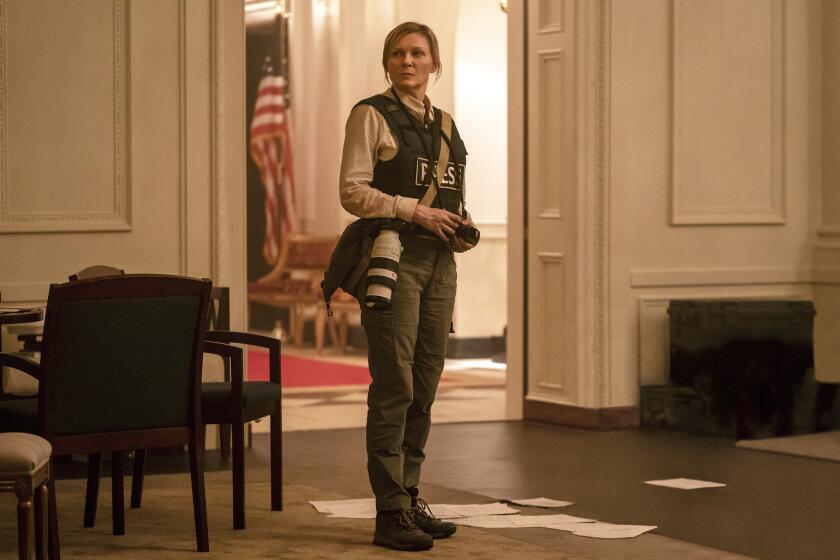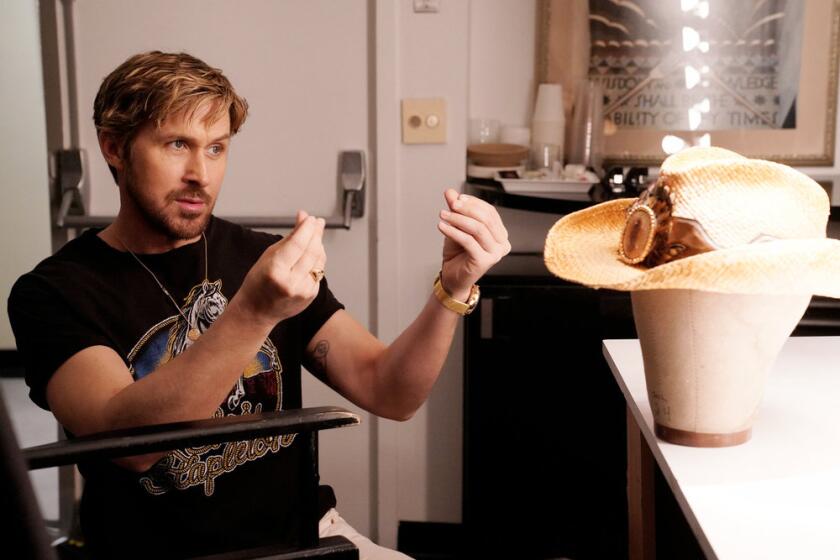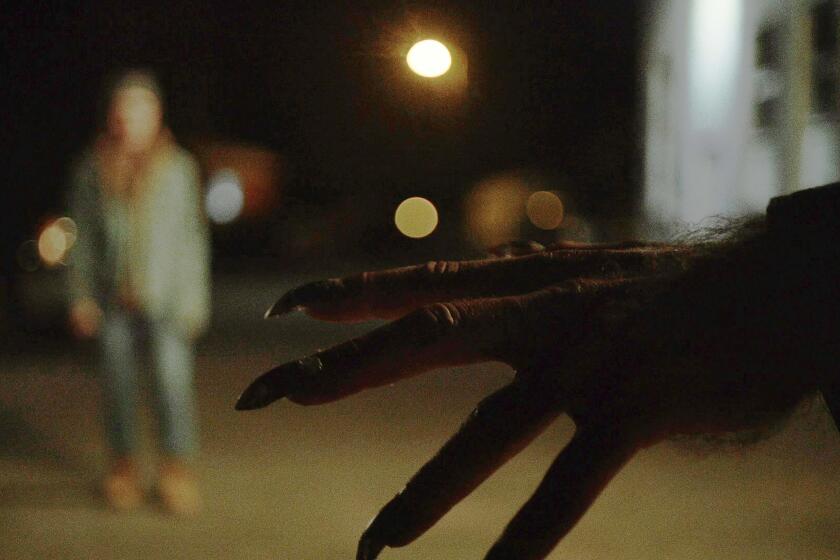‘The Discovery’ director Charlie McDowell’s latest step: Exploring the afterlife
With “The One I Love,” a lo-fi gem about a vacationing couple that stumbles upon its doppelgangers, the filmmaker Charlie McDowell established himself as a brave new voice — a master of the original and screwball.
His new movie, “The Discovery,” is different. The production is bigger, sexier and of the moment. The futuristic story arrives from Netflix — the film debuted Friday on the service and also opened theatrically in selected cities, including Los Angeles). Unlike “The One I Love” it was not shot in the home of the director’s mother and stepfather, Mary Steenburgen and Ted Danson.
It even comes with stars and a whiff of the tabloid: McDowell wrote the part for Rooney Mara, his longtime girlfriend, only to find himself finishing the movie after they broke up. But as he takes a step up the Hollywood ladder, McDowell wants film fans to know that he hasn’t sacrificed intimacy and relatable interactions even if he’s working on a bigger scale.
“Human nature,” he said, “is the most interesting backdrop for a movie.”
Certainly that’s evident from his sophomore effort.
McDowell’s new movie centers on the scientist Thomas Harbor (Robert Redford), who has found empirical proof of an afterlife, setting off an epidemic of suicides as the downtrodden seek to escape to a better place. This upsets Harbor’s son Will (Jason Segel), who, together with a sharp-but-depressed woman he’s just met (Rooney Mara), seeks out his father at the latter’s compound.
Harbor’s retreat is dedicated to investigating the post-death experience, and a series of supernatural occurrences soon addresses both the mysteries of the characters’ lives and life itself. “The Discovery” is a sociological question wrapped in a sci-fi concept: What would happen to us, as a civilization, if we finally knew what happens after we die?
The actors see in the very asking a critique of middle-class complacency.
“There’s an idea that people practice all the time: ‘If I don’t like my life I’ll just get something else and it will be better.’ And of course it’s not better,” Mara said. “This is an extreme version of the same thing.”
Added Segel. “It’s the essence of a midlife crisis--I’ll burn this beautiful thing just to see what’s on the other side.”
McDowell and his writing partner Justin Lader began working on the movie shortly after “The One I Love,” when on a road trip they began speculating not just about the makeup of the afterlife but the implications if we knew it existed.
“Those questions were the idea that got us excited: What if this was the scenario and how would I react?” McDowell said, as he sat alongside Segel and Mara at this year’s Sundance Film Festival in January. He said the depression that some of the characters feel — which impels them to take a greater interest in what comes after death in the first place — is a subject close to his heart.
“I’ve been pretty lucky in my life,” said McDowell, the offspring of Hollywood royalty (his father is Steenburgen’s ex-husband, Malcolm McDowell). “But I’ve had low moments,” he said, without elaborating. “I wanted to put characters into similar positions.”
McDowell’s flair for combining pop storytelling with existential musings — has made the 33-year-old one of the more promising genre talents around. McDowell, whose movies have both premiered at Sundance, blends the humanity of indie film with the narrative chops of Hollywood, earning him comparisons to the likes of Stanley Kubrick and Christopher Nolan.
“When I read the script of ‘The Discovery’ I thought, ‘Whoa, this is really out there,’ ” said Redford by phone last week. His Sundance Institute had helped back “The One I Love.” “And that’s the kind of thing I’m looking for. It’s ‘what is out there that I don’t know about?’ ”
That kind of big-picture questioning informs McDowell’s sensibility in more everyday ways. On his popular Twitter feed, he can offer takes about the world that are tinged by the high concept. “I’m starting to consider that sometime last year there was a blip in the universe and we are living in some weird alternate reality,” he wrote recently.
Segel said he understood why, for directors, using science fiction as a shell for human stories can be so appealing. “It’s such an effective way to get into human-scale issues without falling into the trap of ‘this is as boring as everyday life,’ ” said the actor.
McDowell will return to that terrain with his new project, a limited series for FX and Noah Hawley that adapts Don DeLillo’s “Zero K.” The science-fiction novel is about cryogenics and family dynamics in equal measure and, though it expands the canvas slightly, allows McDowell to keep the ideas grand but the stakes intimate.
Indeed, the director pays hommage to a long tradition of science-fiction novelists interested in the human as much as the interstellar — a tradition revived on screen in recent years by filmmakers such as Duncan Jones (“Moon”) and Mike Cahill (“Another Earth”).
And speaking of interstellar, what of that Nolan comparison? Laid on him in particular by reviewers of this movie, it can be both a blessing and a curse, a compliment and a subtle dig at whether his originality is truly original.
McDowell is careful to pay deference to the “Inception” auteur while drawing some distinctions.
“Christopher Nolan has done an amazing job and made some amazing films,” he said. “Our pitch in trying to get financing is, ‘Let’s take the Christopher Nolan idea and, instead of plowing in a hundred million dollars, we’re going to [delve] into the people.’”
‘The Discovery’
Not rated
Where: Netflix
When: Anytime
See the most-read stories in Entertainment this hour »
Twitter: @ZeitchikLAT
More to Read
Only good movies
Get the Indie Focus newsletter, Mark Olsen's weekly guide to the world of cinema.
You may occasionally receive promotional content from the Los Angeles Times.







